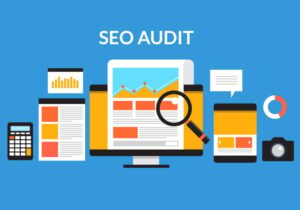
Search is no longer just about keywords and metadata—it’s about context, intent, and delivering the most relevant experience for the user. The evolution of AI-powered search tools in 2025 marks a significant leap in how people access and interact with online content. From advanced natural language processing to real-time data indexing, Artificial Intelligence in search is reshaping the digital discovery process.
Today’s AI-driven tools are smarter, faster, and far more intuitive than ever before. With constant algorithm updates, businesses are now challenged to match this intelligence with optimized content strategies. Whether you’re running an e-commerce store or managing a content-heavy website, staying updated with the latest advancements in AI-powered search tools is no longer optional—it’s essential.
AEO vs SEO: A Shifting Perspective in 2025
One of the most significant paradigm shifts we’re seeing is the rise of Answer Engine Optimization (AEO) as a complement—and sometimes competitor—to traditional SEO. AEO vs SEO is becoming a hot topic as search engines, especially AI-powered ones, aim to provide direct answers rather than just listing pages. AEO focuses on structuring content so that AI can extract and deliver precise answers to user queries, often bypassing the need for users to click through to a website.
While SEO still plays a critical role in visibility and traffic, AEO takes it a step further. It emphasizes voice search optimization, featured snippets, and zero-click search experiences—areas where AI-powered search tools excel. Brands that learn to optimize for both are more likely to dominate the search space in 2025.
What Makes 2025 Different for AI Search?
The last few years have brought incremental improvements, but 2025 is different. Here’s why:
1. Real-Time Search Intent Modeling
Thanks to advancements in machine learning and neural networks, AI can now model search intent in real time. Unlike traditional algorithms that rely on historical data and backlinks, Artificial Intelligence in search now analyzes user behavior live. It considers how long users stay on a page, their scrolling patterns, and even subtle gestures like mouse movement to refine search results.
This intent modeling allows AI to serve hyper-personalized results, dramatically increasing user satisfaction. For businesses, this means your content must align closely with user expectations or risk being ignored altogether.
2. Multimodal AI Integration
Search is no longer limited to text. In 2025, AI-powered search tools will be integrating text, image, and voice queries into a single seamless experience. Platforms like Google and Bing now use multimodal AI to combine various input forms, helping users find what they need with less effort.
For instance, users can snap a photo of a product, describe it via voice, and get results that blend visual and textual matches. Businesses that embrace these capabilities—by adding structured image data, alt texts, and voice-friendly content—will stay ahead.
How Businesses Can Adapt: Practical Strategies
Understanding these changes is one thing—adapting to them is another. Here are some actionable tips for businesses aiming to thrive in the era of intelligent search:
Embrace Structured Data and Schema Markup
AI thrives on structure. The more structured your content, the easier it is for AI to interpret and deliver it accurately. Implementing schema markup helps your website qualify for rich snippets and voice search results, which are key targets in the AEO landscape.
Focus on Topic Clusters, Not Just Keywords
Rather than stuffing your content with exact-match keywords, build topic clusters around user intent. Grouping related content and interlinking it helps AI understand the full context of your site. This not only boosts SEO but also enhances your AEO performance.
Prioritize Mobile and Voice Search
With over half of global searches now coming from mobile devices and a growing percentage through voice assistants, optimizing for voice and mobile is critical. Use natural language, conversational tones, and question-based content to align with how people speak, not just how they type.
AI and Content Creation: A Two-Way Street
Interestingly, AI is no longer just a tool for search engines—it’s also transforming how content is created. Many businesses are using generative AI to develop content faster, perform keyword research, and even suggest content updates. But here’s the catch: AI can only take you so far.
Search engines are increasingly trained to detect AI-generated content that lacks depth or authenticity. Original, human-centric content still performs best. In short, let AI be your assistant—not your writer.
The Role of SEO Services in 2025
Navigating this rapidly changing landscape requires specialized knowledge. That’s where professional SEO Services come in. A good agency doesn’t just optimize your meta tags—they build an end-to-end strategy that includes AEO, schema implementation, and AI-readiness assessments.
Whether you’re launching a new site or revamping an existing one, having a team that understands the interplay between SEO, AEO, and AI-driven search is crucial. In 2025, DIY optimization is no longer enough—expert guidance is your competitive edge.
What’s Next for AI-Powered Search?
The next frontier is predictive and proactive search. Imagine opening your browser and seeing suggestions before you even type—based on your location, past searches, and behavior patterns. AI is moving toward anticipatory search, and this changes the entire marketing funnel.
Soon, brands won’t just be reacting to user queries—they’ll be proactively placed in front of the right audiences before a question is even asked. This means your content strategy must be always-on, data-informed, and deeply user-centric.
Final Thoughts
As we move deeper into 2025, it’s clear that AI-powered search tools are not just an upgrade to old systems—they’re a complete transformation of how search functions. From real-time intent analysis to multimodal input and the rise of AEO, Artificial Intelligence in search is creating smarter, more intuitive experiences.
Businesses that stay informed, flexible, and committed to high-quality, structured content will have a distinct advantage. Whether you’re updating your site, building new content, or evaluating your Search Engine Optimization Services, now is the time to future-proof your digital presence.
The search landscape is evolving fast, but with the right strategy, you won’t just keep up. You’ll lead.




